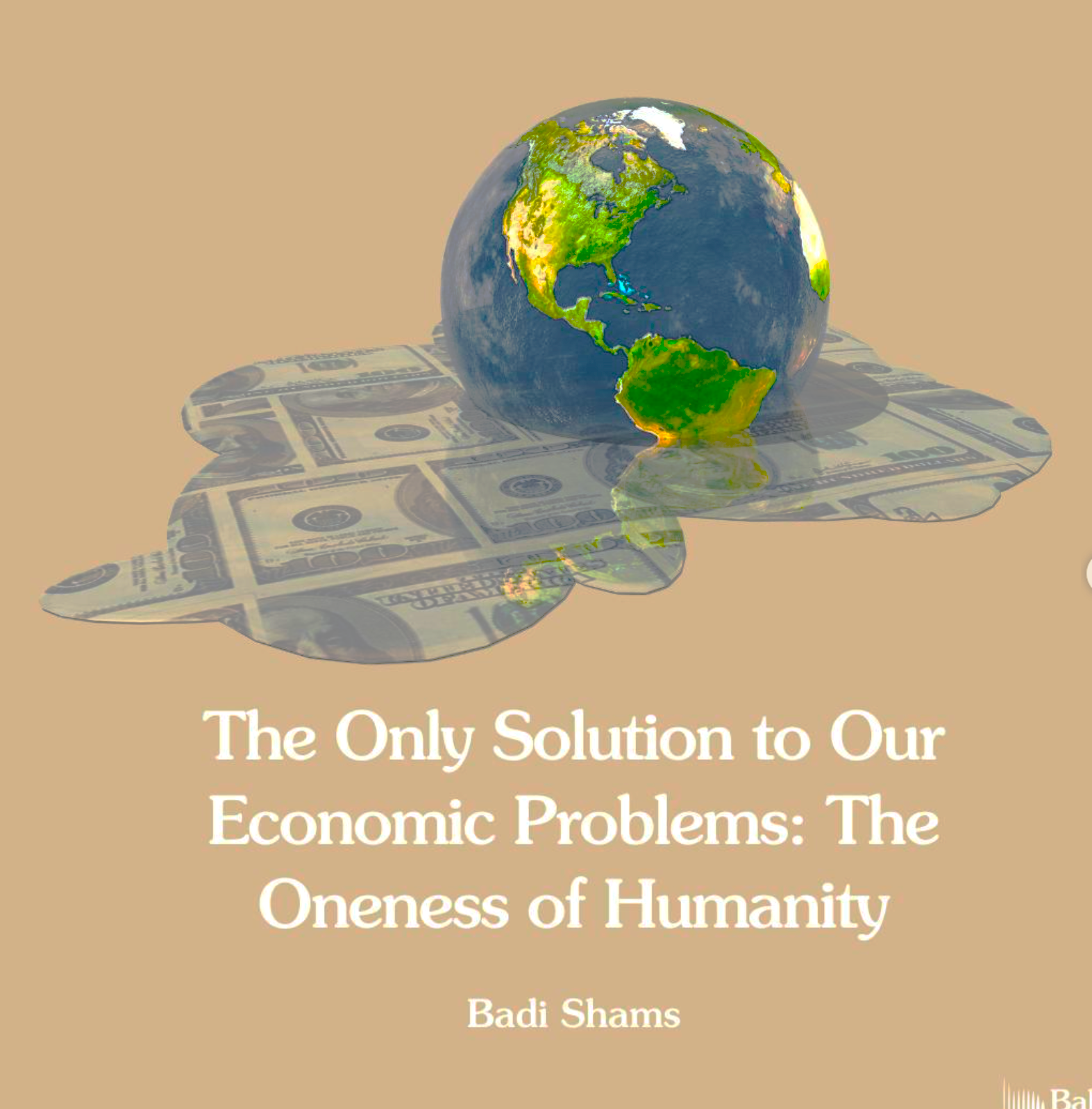In the intricate tapestry of human existence, where threads of diverse cultures, beliefs, and economic realities intertwine, the Bahá’í teachings offer a clarion call for unity through the principle of oneness. This profound concept serves as a compass, guiding humanity towards the resolution of rampant economic disparities and social injustices. In exploring this theme, we unravel the rich layers of Bahá’í teachings, where the oneness of humanity emerges not merely as an idealistic notion but as an operational paradigm, crucial for addressing the multifaceted economic crises plaguing societies worldwide.
At the heart of Bahá’í philosophy lies the assertion that all human beings, regardless of background, share a common origin. This foundational truth transcends superficial differences, establishing a collective identity that renders divisive economic systems obsolete. Imagine a grand orchestra: each instrument represents a different nationality, culture, or socioeconomic status. When harmonized under a single conductor’s baton—the principle of oneness—the result is a symphony far superior to any isolated melody. This image illustrates that a collaborative approach is essential in rectifying economic discord, thus embracing the universal kinship of mankind.
The contemporary economic landscape is marred by stark inequalities, exclusionary practices, and systemic barriers that hinder equitable access to resources. To comprehend the gravity of these issues, one must reflect on the metaphor of the vine and the branches. A vine, thriving in unity, nourishes each branch, allowing it to grow and bear fruit. Conversely, a vine fractured and isolated cannot sustain its branches; they wither and die. In this context, the concept of oneness becomes a critical lifeline, urging societies to abandon competitive individualism in favor of cooperative collectivism.
Central to the Bahá’í teachings is the idea that economic systems must reflect moral principles. Drawing from the oneness of humanity, it becomes apparent that economic policies ought to harmonize with spiritual values. The dichotomy between material wealth and spiritual impoverishment must be bridged. An economy devoid of ethical considerations inevitably leads to exploitation and alienation. Thus, the Bahá’í approach advocates for an economic structure that embodies a dual foundation: material prosperity paired with moral rectitude. This holistic view prompts a re-evaluation of success beyond mere financial gain, redefining it to include social responsibility and the well-being of all.
The issues of poverty and wealth accumulation, viewed through the lens of Bahá’í teachings, invoke a deeper understanding of individual responsibility within a collective framework. The notion of oneness fosters the belief that not only are we affected by the economic status of our neighbors, but we are intricately connected to their plight. Consequently, the moral imperative to alleviate suffering becomes an irrefutable call to action. As the Bahá’í writings suggest, “The one who is in need is a cause of joy and excellence.” This sentiment underscores the transformative power of altruism, heralding an economic ethos grounded in the sanctity of human dignity.
In contemplating the practical implications of this oneness, one might consider the potential for collaborative economic initiatives. These can manifest in various innovative frameworks, including cooperatives, social enterprises, and community-focused initiatives that prioritize mutual benefit over maximized profits. Such ventures not only challenge conventional paradigms but also embody a reimagined economic order where the success of one is intrinsically linked to the success of many. The cooperative model symbolizes a fertile ground where the essence of social cohesion is cultivated, thereby mitigating the alienation often wrought by traditional capitalist structures.
The transformational aspect of oneness extends beyond economic solutions; it encompasses a comprehensive revolution in thought and action. Philosophy must accompany practicality; thus, educational systems need to pivot towards cultivating a sense of universal responsibility. For the youth, especially, the development of a mindset oriented towards global interconnectedness is paramount. They ought to be educated not only as future workers but as conscientious citizens bearing the mantle of societal stewardship. The oneness of humanity fosters a shared vision, cultivating individuals who are prepared to innovate solutions that are inclusive and equitable.
Moreover, the role of governance in promoting economic justice cannot be overlooked. Governments, as stewards of their constituents, are called to embody the principles of oneness in their policies. This can include measures that redistribute resources equitably, provide universal access to basic needs, and ensure that economic growth translates into societal well-being. By recognizing the interconnected fabric of society, policy-makers can forge legislation that serves the common good rather than perpetuating the interests of a select few. Such governance, characterized by inclusivity and accountability, facilitates an environment where economic problems are addressed not through isolationist tactics but through a commitment to collective advancement.
In conclusion, the Bahá’í teachings elucidate a poignant reality: that the oneness of humanity is not merely a philosophical postulate but a vital strategy for economic reform. To respond effectively to the current economic quandaries, humanity must shift its focus from divisive competition to cohesive collaboration. This paradigm fosters the emergence of an equitable and sustainable economy reflective of shared human dignity. As society embraces the profound interconnectedness championed by Bahá’í teachings, the transition towards economic justice will become an inevitable and liberating journey. In moving forward, it is essential to recognize that economic solutions rooted in the oneness of humanity embody not just an appealing ideal but a practical necessity for survival and prosperity.
